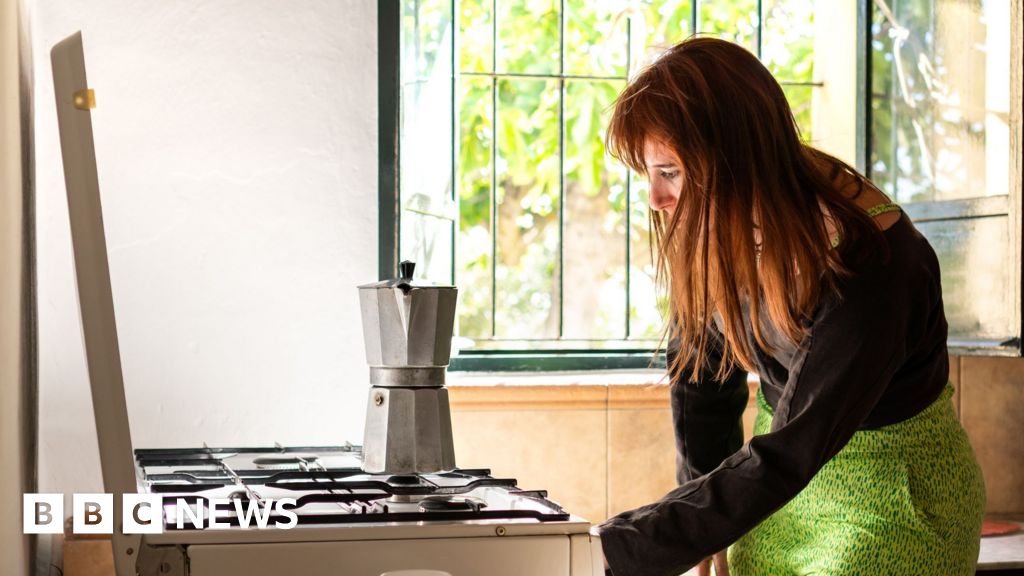Russian gas supplies to EU states via Ukraine will cease after a five-year agreement between Ukraine’s gas transit operator Naftogaz and Russia’s Gazprom expired.
Ukrainian President Volodymyr Zelensky earlier said his country would not allow Russia to “earn billions more on our blood” and had given the EU a year to prepare.
The European Commission said the continent’s gas system was “resilient and flexible” and that it had sufficient capacity to cope with the end of transit via Ukraine.
Russia can still send gas to Hungary, as well as Turkey and Serbia, through the TurkStream pipeline across the Black Sea.
The shutdown of the flow through Ukraine marks the end of an era of cheap Russian gas in the EU.
Slovakia is worst hit, while the European Commission says the impact will be limited, thanks to careful planning and alternative supplies.
But the strategic and symbolic impact for the whole of Europe is enormous.
Russia has lost an important market, but Russian President Vladimir Putin says EU countries will suffer the most.
The EU has significantly reduced imports of gas from Russia since it launched its full-scale invasion of Ukraine in 2022, but a number of eastern member states are still heavily dependent on the supplies, leaving Russia around 5 billion euros. euros (5.2 billion a year.
Russian gas accounted for less than 10% of EU gas imports in 2023, according to figures from the blockcompared to 40% in 2021.
But several EU members, including Slovakia and Austria, continue to import significant amounts of gas from Russia.
Austria’s energy regulator said it did not predict any supply disruption as it had diversified sources and built up reserves.
But Ukraine’s decision has already created serious tensions with Slovakia, which is now the main gateway for Russian gas to the EU and earned transit fees from routing the gas to Austria, Hungary and Italy.
On Friday, Slovakia’s prime minister became Robert Fico – who had just made one surprise visit to Moscow for talks with Russian President Vladimir Putin – threatened to stop the supply of electricity to Ukraine.
This got Mr. Zelensky to accuse him of helping Mr. Putin to “finance the war and weaken Ukraine”.
“Fico is dragging Slovakia into Russia’s attempt to cause more suffering for Ukrainians,” the Ukrainian president said.
Poland has offered to support Kiev in case Slovakia cuts off its electricity exports – supplies vital to Ukraine, whose power plants come under regular attack from Russia.
Moldova – which is not part of the EU – could be seriously affected by the expiry of the transit agreement. The gas powered a power plant that Moldova relies on for most of its electricity needs. It also supplied the Russia-backed breakaway region of Transnistria, a small sliver of land sandwiched between Moldova and Ukraine.
Moldova’s energy minister, Constantin Borosan, said the government had taken steps to ensure stable power supplies to the country, but urged citizens to conserve energy. A 60-day state of emergency in the energy sector has been in place in Moldova since mid-December.
President Maia Sandu accused the Kremlin of “blackmail” possibly aimed at destabilizing her country ahead of parliamentary elections in 2025. The Moldovan government also said it had offered aid to Transnistria.
Russia has been transporting gas to Europe through Ukraine since 1991.
Since the EU has reduced its dependence on Russian gas, alternative sources have been found in liquefied natural gas (LNG) from Qatar and the USA as well as pipe gas from Norway.
In December, the European Commission made plans it said it would allow EU member states to completely replace gas transiting through Ukraine.
According to the EU’s contingency plans, affected countries will be supplied with Greek, Turkish and Romanian gas from the Trans-Balkan route, while Norwegian gas will be routed through Poland. More supplies will also reach Central Europe through Germany.
